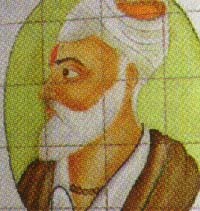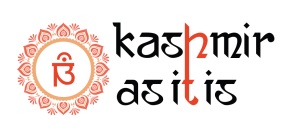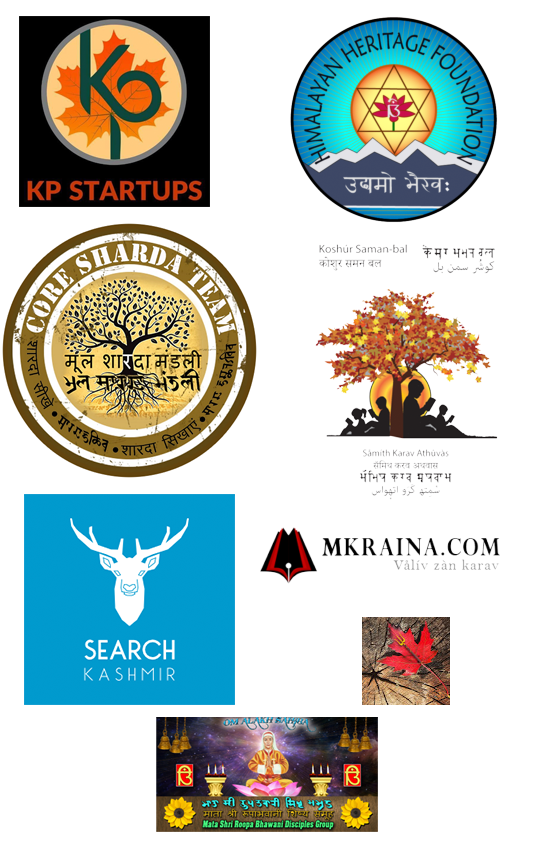NAME – Pandit Nand Ram is known as Swami Parmanand (“Param- Anand: eternal bliss”)
Born – Pandit Nand Ram, Parmanand being his penname, was born in Seer Village near Mattan (Martand), one of the famous holy places of India (1791 – 1879) AD. Parents – Both his father, Krishna Pandit, and his mother, Saraswati Devi, were of religious bent of mind.
Childhood – Child Nand Ram got his education in Persian, the court language of Kashmir those days, in his own village. He also learned Sanskrit from Sadhus who used to visit and stay at Martand temple. Nand Ram was a precocious child and his teachers and schoolmates were greatly impressed by his sincere devotion and inborn knowledge about spiritual matters. He attained mastery over Persian and wrote verses in that language under the pen-name “Gareeb”. Parmanand was married to Mal Ded, a girl from his own village. She was an ill-tempered lady, yet the tolerant nature of the saint took it in its stride.
Contributions – The devotional songs and hymns in praise of Lord Krishna are to this day on the lips of all Kashmiris. His poetic collections are available in both Devanagri and Persian scripts. Master Zinda Kaul, the famous poet of Kashmir, Pandit Narayan Kaul his beloved disciple-poet, Pandit Laxman Bhat of village Nagam, also have edited some of his collections. Parmanand was an eloquent and a gifted poet endowed with a forceful style. His Sudhama Charactar is regarded as one of its best Kashmiri renderings. His spiritual hymns and Leelas are recited in temples and on marriage ceremonies or on festivals such as Janamashtami or Shivratri. His style is direct and effective.
Parents – Both his father, Krishna Pandit, and his mother, Saraswati Devi, were of religious bent of mind.
Childhood – Child Nand Ram got his education in Persian, the court language of Kashmir those days, in his own village. He also learned Sanskrit from Sadhus who used to visit and stay at Martand temple. Nand Ram was a precocious child and his teachers and schoolmates were greatly impressed by his sincere devotion and inborn knowledge about spiritual matters. He attained mastery over Persian and wrote verses in that language under the pen-name “Gareeb”. Parmanand was married to Mal Ded, a girl from his own village. She was an ill-tempered lady, yet the tolerant nature of the saint took it in its stride.
Contributions – The devotional songs and hymns in praise of Lord Krishna are to this day on the lips of all Kashmiris. His poetic collections are available in both Devanagri and Persian scripts. Master Zinda Kaul, the famous poet of Kashmir, Pandit Narayan Kaul his beloved disciple-poet, Pandit Laxman Bhat of village Nagam, also have edited some of his collections. Parmanand was an eloquent and a gifted poet endowed with a forceful style. His Sudhama Charactar is regarded as one of its best Kashmiri renderings. His spiritual hymns and Leelas are recited in temples and on marriage ceremonies or on festivals such as Janamashtami or Shivratri. His style is direct and effective.
 Parmanand’s philosophy is best depicted in Karam Bhoomika where he says that the highest good is only attainable when the self is subdued and that perennial joy is the reward obtained by the mastery of one’s own self. To overcome one’s own self, according to him, is to wage the toughest war in the battlefield of life and to subdue one’s own self is the noblest of all victories. Religion for Paramanand was not mere ritual and formal worship but something far more fundamental and a matter deeply connected with the soul. In the poem, Amarnath Yatra, he describes the different paths and stages an aspirant has to pass in spiritual Sadhana. Most of his poems are allegorical. His poem, Radha Suamber, is his masterpiece and is regarded as one of the most precious contributions to devotional literature. To read Parmanand or listen to his Leela’s is to live through a religious experience which gives Param- Anand: eternal bliss. He left the Kashmiri language positivity richer than he had found it. His writings provide convincing proof of the universality of the concept that Truth is one, though sages call it by different names. In his famous poem, Shiv-Lugan, Parmanand propounds the unity of the One and the many. The infinite and the finite are absolutely identical, according to him. In another poem, The Scenes of the Tree and its Shade, he says that God is attained by merging the finite with the infinite. He asserts that by getting freedom from our wordly fetters we can attain salvation. At about 90, this great mystic poet died in 1879 A.D. Pandit Laxman Bhat wrote his death date in his elegy in which he lamented, “The singing nightingale of the garden became silent making the garden desolate”.
References:
http://www.ikashmir.net/parmanand/index.html http://www.ikashmir.net/parmanand/article1.html
Parmanand’s philosophy is best depicted in Karam Bhoomika where he says that the highest good is only attainable when the self is subdued and that perennial joy is the reward obtained by the mastery of one’s own self. To overcome one’s own self, according to him, is to wage the toughest war in the battlefield of life and to subdue one’s own self is the noblest of all victories. Religion for Paramanand was not mere ritual and formal worship but something far more fundamental and a matter deeply connected with the soul. In the poem, Amarnath Yatra, he describes the different paths and stages an aspirant has to pass in spiritual Sadhana. Most of his poems are allegorical. His poem, Radha Suamber, is his masterpiece and is regarded as one of the most precious contributions to devotional literature. To read Parmanand or listen to his Leela’s is to live through a religious experience which gives Param- Anand: eternal bliss. He left the Kashmiri language positivity richer than he had found it. His writings provide convincing proof of the universality of the concept that Truth is one, though sages call it by different names. In his famous poem, Shiv-Lugan, Parmanand propounds the unity of the One and the many. The infinite and the finite are absolutely identical, according to him. In another poem, The Scenes of the Tree and its Shade, he says that God is attained by merging the finite with the infinite. He asserts that by getting freedom from our wordly fetters we can attain salvation. At about 90, this great mystic poet died in 1879 A.D. Pandit Laxman Bhat wrote his death date in his elegy in which he lamented, “The singing nightingale of the garden became silent making the garden desolate”.
References:
http://www.ikashmir.net/parmanand/index.html http://www.ikashmir.net/parmanand/article1.html







